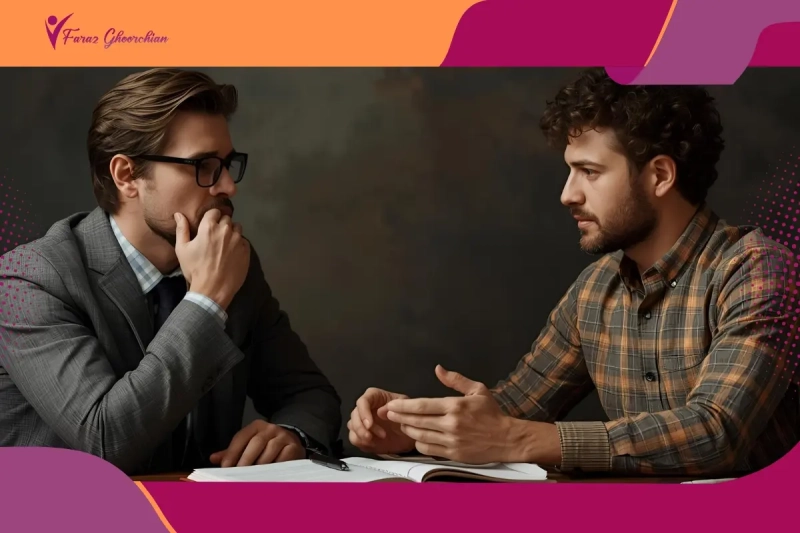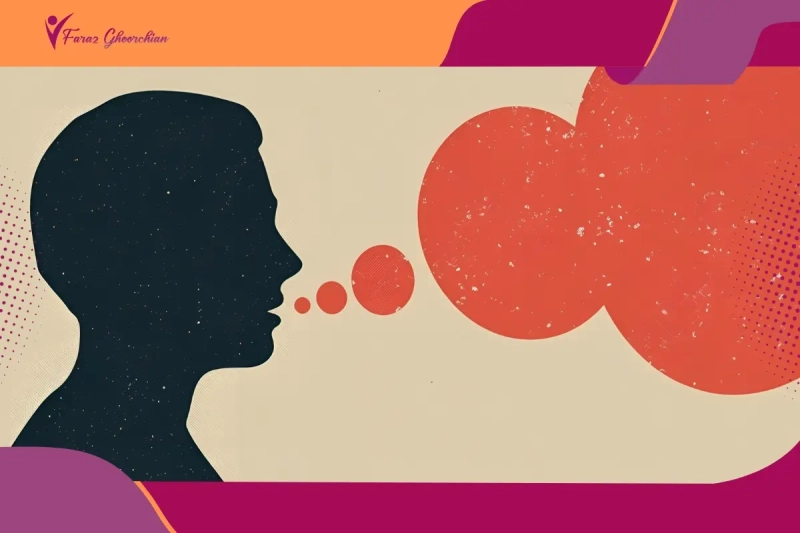- 1. Introduction: Why Peer Support Changes the Game in Recovery
- 2. Understanding Masturbation Recovery: More Than Just Willpower
- 3. The Psychology of Peer Support in Habit Change
- 4. Benefits of Peer Support in Masturbation Recovery
- 5. Choosing an Accountability Partner for Masturbation Recovery
- 6. How Group Accountability Works in Masturbation Recovery
- 7. Exploring Online Masturbation Recovery Support Groups
- 8. Masturbation Recovery Tracking Tools & Accountability Apps
- 9. Celebrating Milestones: Motivation Through Accountability
- 10. Overcoming Shame and Building Emotional Support in Recovery
- 11. Specialized Peer Support: Teens, Faith-Based, and Gender-Focused
- 12. Structured Masturbation Recovery Plans & Mentorship
- 13. Life Transformation Through Accountability: Real Stories
- 14. Conclusion: Building a Lasting Support System for Change
- 15. FAQs
Introduction: Why Peer Support Changes the Game in Recovery
Ask anyone who has ever tried to change a deeply personal habit, and they will often say the hardest part is feeling alone with it. The role of peer support and accountability in masturbation recovery goes beyond just advice or statistics; it is about having someone who understands. Picture a late-night text from a friend who “gets it,” or that quiet relief after admitting a setback to someone who has been there too. Suddenly, the urge to hide slips away, and real conversations begin. In those moments, peer support to prevent masturbation relapse feels less like a clinical idea and more like a lifeline. Recovery starts to look possible; Not because of perfect willpower, but because someone else is rooting for you.
Understanding Masturbation Recovery: More Than Just Willpower
Most people walk into recovery with a simple plan: just say no, and tough it out. But anyone who has tried it knows that the role of peer support and accountability in masturbation recovery shows up the moment willpower runs thin. Take the story of someone who tried to quit alone and found that stubborn urges kept showing up after a stressful day. These patterns are often tied to deeper bad habits, not just lack of discipline. It is usually not about strength, but about having tools and people on your side. Sometimes a message in one of the online masturbation recovery support groups is the difference between giving in and holding on. Those who use structured masturbation recovery plans often realize that real change comes from daily routines and honest connections, not just silent resolve. Recovery is much more than gritting your teeth; it is about building a new way to live.
The Psychology of Peer Support in Habit Change
Change, especially when it comes to habits, is rarely straightforward. Anyone who has joined a support group knows that the psychology of peer support in habit change is more than theory. One guy named Arash once shared in an online forum that he managed to stay strong during a rough patch, not because he suddenly became more disciplined but because a friend checked in just when he needed it. That moment of support made all the difference. It turns out, humans are wired to crave connection, especially during tough times.
Within the role of peer support and accountability in masturbation recovery, these bonds help turn guilt into growth. Group accountability in masturbation recovery can feel awkward at first. Over time, it’s those small nudges, a word of encouragement, a shared story, someone else admitting they slipped too, that help people stick with change. There’s comfort in knowing others truly get it. Some even pair group check-ins with routines like sex benefits exercise, using healthy movement to reinforce focus and emotional balance. That connection is often what keeps recovery real and ongoing.
Benefits of Peer Support in Masturbation Recovery
For most, starting out alone can feel like climbing a hill in the dark. People who have actually walked through the role of peer support and accountability in masturbation recovery will say there’s just something different about knowing someone’s got your back. The benefits aren’t just theory; They show up in daily life, sometimes in surprising ways:
- Motivation that Sticks: One man in a small group once joked that he kept up with his recovery just to avoid lying on the weekly call. It’s a simple example, but regular check-ins bring accountability that pushes people to try a bit harder, especially when energy is low.
- Shame Begins to Fade: Honest talks about slip-ups can turn the heavy feeling of secrecy into a quiet sense of relief. The truth is, peer support to prevent masturbation relapse often starts with realizing you are not the only one.
- Emotional Support When It Counts: There are days when everything feels harder. A message from a friend or even a meme in the group chat can make those days manageable, providing encouragement and emotional steadiness.
- Swapping Tips that Actually Work: People are quick to share what helped them, from little changes in routine to structured masturbation recovery plans that fit real life. Advice feels less like a lecture and more like a chat over coffee.
In the end, the benefits of peer support in masturbation recovery come down to not facing the challenge alone. It’s about stumbling forward together and finding small wins as a team.
Choosing an Accountability Partner for Masturbation Recovery
Picking an accountability partner for masturbation recovery is sometimes trickier than people expect. It is not just about finding a friend or someone who texts you reminders. The real magic often comes when the person on the other end truly understands what the ups and downs feel like. Some choose a close friend who has faced similar habits, while others look for someone they meet through support circles. There are people who say the best moments are those late-night messages after a rough day, when honesty replaces shame and laughter slips in between tough admissions.
The role of peer support and accountability in masturbation recovery is about trust and patience, not just checklists. It is okay if things feel awkward at first; that is how real connection grows. Over time, a good partner becomes less of a coach and more of a companion, someone cheering for progress and never keeping score.
How Group Accountability Works in Masturbation Recovery
Anyone who has stepped into a support group for the first time knows the odd mix of nerves and relief that comes with it. In the world of group accountability in masturbation recovery, meetings are less about lectures and more like a circle of friends swapping real stories and checking up on one another. There is always someone who cracks a joke about an awkward moment or someone else who asks the question everyone has been avoiding, like whether a certain masturbation side effect is actually normal.
For many, showing up week after week makes a difference. The role of peer support and accountability in masturbation recovery shows itself in unexpected ways, such as when a member confesses to slipping and instead of judgment, the group offers empathy and advice. Shared rituals, like celebrating someone’s streak or just listening on a tough day, help turn group accountability from a scary idea into a real lifeline. People begin to realize that recovery can be a team sport, not a solo fight.
Exploring Online Masturbation Recovery Support Groups
Logging into an online masturbation recovery support group for the first time can feel oddly nerve-wracking, even if nobody knows your real name. One man once joked that the hardest part was picking a username that didn’t sound like a superhero or a robot. But soon enough, the nerves fade and the conversations turn real. In these spaces, people swap stories and awkward moments and, more importantly, daily victories and setbacks.
It’s easy to see why so many consider these places the best online communities for sexual habit recovery. There is always a mix of honest advice, late-night encouragement, and the occasional meme. Whether it’s male peer support in masturbation recovery or a private channel for female peer support for masturbation addiction, there is something grounding about hearing from someone who truly gets it.
People quickly realize they’re not alone. Over time, those regular check-ins and shared laughs help make recovery a little less daunting and a lot more human.
Masturbation Recovery Tracking Tools & Accountability Apps
Few things change a recovery routine quite like pulling out your phone and seeing your own streak staring back. Some people will admit to checking their masturbation recovery tracking tools first thing in the morning, almost like they are peeking at the weather. The best accountability apps for masturbation habits have a way of making small wins feel bigger, whether that means a virtual badge or just seeing that line of unbroken days.
It is not about perfection. One woman once shared that her favorite part of these apps was logging a rough day, then getting a quick “You’ve got this” from her accountability partner. That tiny bit of connection helps many stick with quitting masturbation on the hardest days. Over time, these tools become less like chores and more like friendly reminders that progress, however messy, is always worth tracking.
Celebrating Milestones: Motivation Through Accountability
Nothing lights up a group chat like someone finally posting, “Day 60, made it!” In the world of recovery, these moments matter more than outsiders might think. The simple act of celebrating milestones in recovery with peers, even if it is just a silly emoji parade or a quick thumbs-up, can shift the mood of an entire day. Some groups have inside jokes about virtual trophies or share their favorite snack as a little reward.
This is how motivation through accountability in recovery really works. People start looking forward to checking in, just to see who else is celebrating. The role of peer support and accountability in masturbation recovery shines brightest in these shared victories, where a community’s encouragement turns a private goal into a reason for everyone to keep moving forward.
Overcoming Shame and Building Emotional Support in Recovery
For many, shame is the heaviest part of the struggle. It can creep in quietly, making it hard to ask for help or even talk about the journey. But the truth is, nobody should have to carry that weight alone. The power of overcoming shame with peer support is real. When people open up in a safe space and realize others have similar stories, something shifts inside. Suddenly, embarrassment starts to give way to understanding.
The role of emotional support in masturbation recovery cannot be overstated. Honest conversations with peers, especially those who have faced setbacks themselves, offer a kind of comfort that textbooks and advice columns rarely provide. Research shows that peer support and mental health in recovery are closely linked, with those who receive genuine encouragement reporting higher self-worth and fewer moments of despair. These bonds are not about pretending to be perfect but about showing up, telling the truth, and hearing “me too” from someone who gets it. That shared humanity is often where healing really begins.
Specialized Peer Support: Teens, Faith-Based, and Gender-Focused
Not every recovery journey looks the same, and sometimes what truly makes the difference is finding a group that understands your world. Teen peer support in masturbation recovery has its own rhythm, shaped by school pressures, social media, and growing up with questions that feel too awkward to ask adults. Teens often thrive when surrounded by people their own age who get it, without judgment or lectures.
For others, faith-based peer support in masturbation recovery offers a blend of spiritual encouragement and practical advice, making space for those who want recovery to line up with their values. Groups that focus on male peer support in masturbation recovery or female peer support for masturbation addiction also fill a gap. People find comfort in talking openly with others who share similar life experiences and challenges. These specialized groups remind everyone that there is no one-size-fits-all answer, and real connection happens when support meets each person where they are.
Structured Masturbation Recovery Plans & Mentorship
Some people show up thinking sheer motivation will carry them, but most soon realize a plan makes all the difference. Structured masturbation recovery plans are less about strict rules and more about finding routines that work for real life. One man laughed about his morning checklist taped to the bathroom mirror, a reminder that habits need more than just willpower.
Mentorship changes things, too. People in mentorship programs for masturbation recovery often talk about the relief of learning from someone who’s already stumbled through the hard parts. A mentor might introduce daily journaling or suggest trying The HALT Method: Managing Urges Through Emotional Awareness during those tough afternoons. Recovery feels less like a solo struggle and more like a journey with a guide, turning confusion into a series of clear, manageable steps.
Life Transformation Through Accountability: Real Stories
For many, recovery does not just change habits; it rewrites the story of their lives. People who once felt stuck and alone often share how the life transformation through accountability surprised them most. One man admitted he only joined a group for the structure, but ended up staying for the friendships. Another woman described the moment she realized she had gone a month without hiding, all because of the steady support from her peers.
The ongoing role of peer support and accountability in masturbation recovery is easy to spot in these stories. Those who commit to real check-ins, honest conversations, and community find themselves growing more confident and resilient. Over time, these changes ripple out, improving not just personal well-being but relationships, work, and the ability to set healthy boundaries.
Conclusion: Building a Lasting Support System for Change
Looking back, most people who succeed in recovery say it was the support, not the struggle, that mattered most. The steady role of peer support and accountability in masturbation recovery is easy to overlook until you have felt it yourself. Real progress comes from honest check-ins, awkward laughter, and those times someone else believes in you when you cannot. Maybe it is a mentor’s advice, a late-night text from a group chat, or just the quiet relief of not having to do this alone. In the end, change sticks best when support feels real and personal, not just like another rule on a checklist.
FAQs
1- What are the benefits of peer support in masturbation recovery?
People find that sharing struggles and wins with others helps reduce shame, boosts motivation, and makes it easier to stick to new habits. The benefits of peer support in masturbation recovery include feeling understood and gaining practical advice from peers.
2- How do I choose an accountability partner for masturbation recovery?
Look for someone trustworthy and supportive who understands your journey. The best accountability partner for masturbation recovery is often someone who listens without judgment and encourages honest progress.
3- Are online masturbation recovery support groups really helpful?
Many individuals report that online masturbation recovery support groups offer constant support, practical tools, and a sense of community, especially when in-person help is not available.
4- What tools can help track progress?
Using masturbation recovery tracking tools or the best accountability apps for masturbation habits helps people stay on track and celebrate small wins along the way.











